Part 116: Hearts of Iron II: Chapter 14 - Small Victories: Sep - Dec 1939
September 1939 - December 1939: Small Victories
September begins with a significant push in France with the objective of securing the north side of the Loire. Eleven divisions advance on Bourges and Guderian's armor are given the task of taking Brittany.

After bitter fighting, the Iberians in Bourges finally retreat and the city is secured for Germany.

The Iberians respond to their loss of territory by attacking Angers, but in doing so expose their flank, leaving Brittany practically undefended.
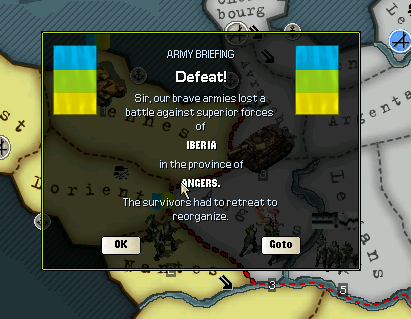
Guderian quickly responds to this weakness, taking Rennes and L'orient and advancing on Brent. The single armor division defending the city is quickly defeated.
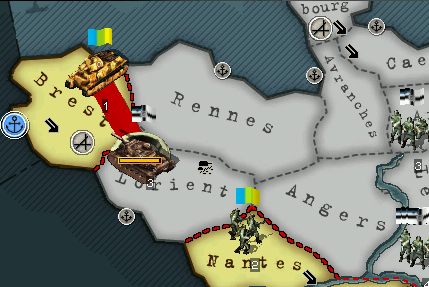
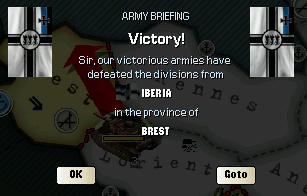
After a brief fight, Angers is also retaken and Nantes falls, bringing the entirety of Brittany into German hands and securing the west flank.

German agents in Iberia bomb a factory under construction on Waldemar's orders, achieving little practical effect but striking a blow to Iberian morale.
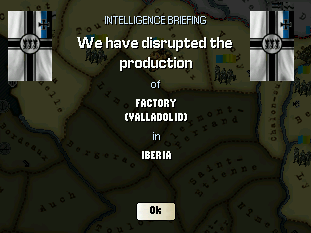
With the French front safe for the moment, German High Command turns its attention to Russia. The Russians are directing their war efforts from the port cities of Odinholm and Archangelsk, and intelligence believes that if these cities can be taken, the Russians might be willing to offer a favorable peace.
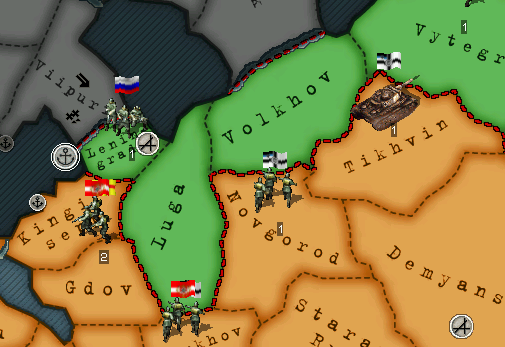
Another front against the Union has been opened in the Caucasus, with the Union occupation army in Georgia advancing towards Crimea.

The Caribbean War ends with victory for Tarrbitz as the Republic of Mansur falls. As the Sultan of Tarrbitz celebrates his victory and peace returns to the Caribbean, war continues to range unabated across the rest of the world.
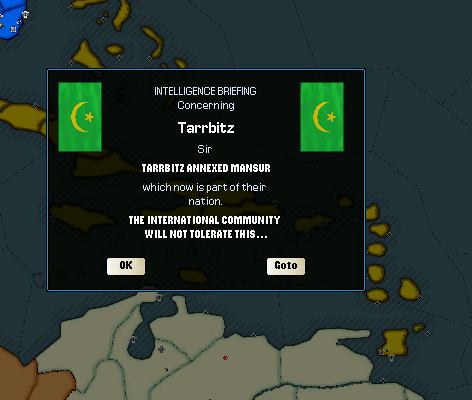
Reinforcements in the form of nine new infantry divisions stand ready in October, and are deployed into Poland against the Union.

With winter drawing closer, the need to strike a decisive blow against Russia becomes more urgent, and German armor is sent to make the final push against Archangelsk.

As the land war in France and Italy grinds to a standstill, the Iberians have been trapping up their sea war, attacking convoys transporting goods from the German colonies indiscriminately.
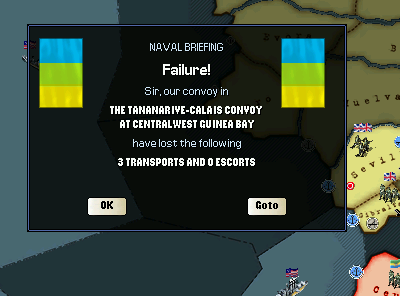
The losses are starting to put a serious dent in the German shipping fleet, and orders are issued to build new ships to replace the lost ones, and for an increase in the number of escorts per convoy. Engaging Iberia's fleet directly is deemed too risky - another fleet disaster would severely damage German ability to contain the British to their island.
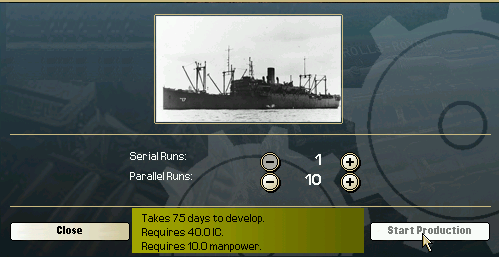
Archangelsk and Odinholm finally fall in November, just as the first snow is falling.
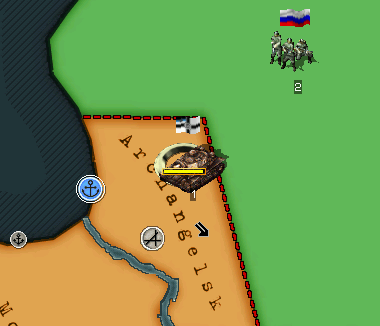
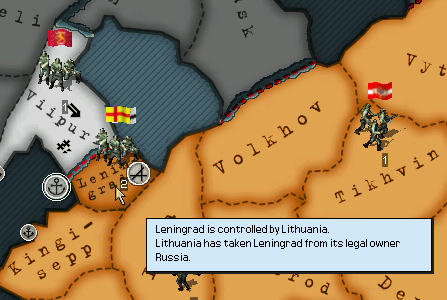
The weather is also growing steadily worse in the west, and the armies in France are ordered to dig in for the winter and begin the recruitment and training of engineer crops for the planned spring offensives across the Loire.
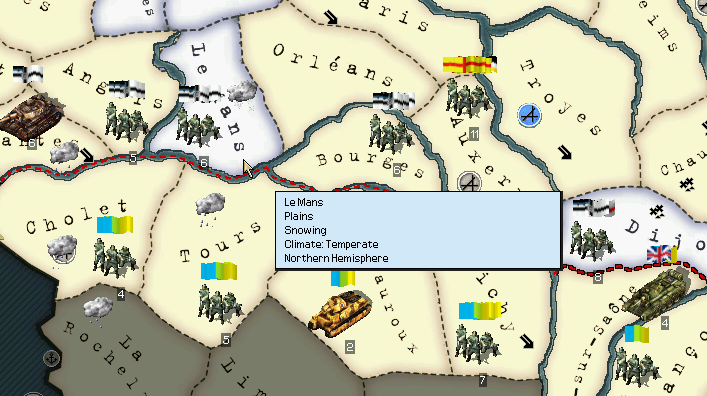
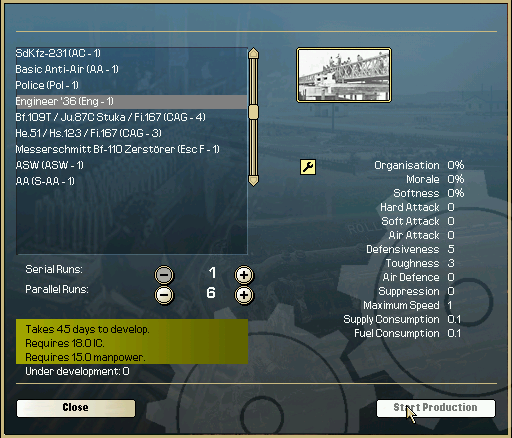
As november nears its end, German, Russian, Scandinavian and Lithuanian diplomats assemble for a secret meeting in Helsinki to discuss possible terms of peace. After a few days of threats, demands and posturing, the Russians finally present their offer: Withdrawal from the League and the entire Don-Volga region to Lithuania.
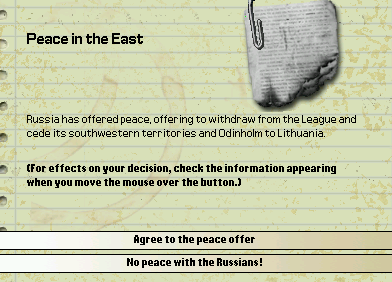
As news of the Russians' offer reach him, Waldemar assembles the Advisory Council to hear their opinions on the proposal. It is certainly not a bad peace deal, but things are stable on most fronts now - perhaps the Russians can be pressed further? On the other hand, all the Russian industrial centers in the west are already under Lithuanian control, and advancing further east would involve trekking across hundreds of miles of forest, mountains and frozen wastelands.
The strategic situation in Europe is mostly good: Both sides have halted their offensives in France and Italy for the winter, and while the Union continues its dogged push into Lithuania, the combined German-Lithuanian defenders are holding strong.
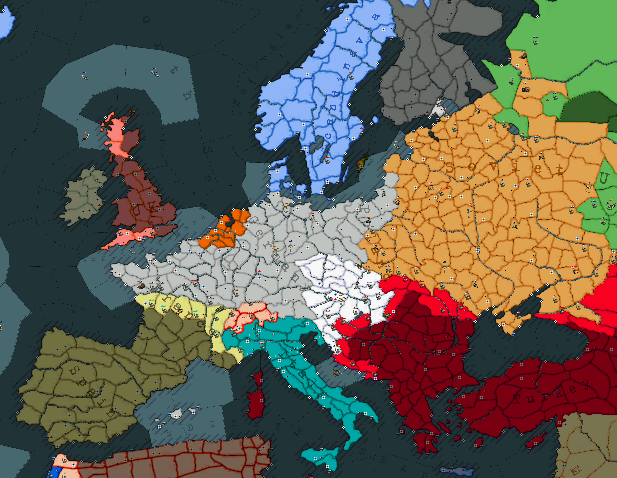
As before, things are going well in North Africa, but less well in South Africa, where the Ljanistar armies have been reinforced by an Iberian expeditionary force.
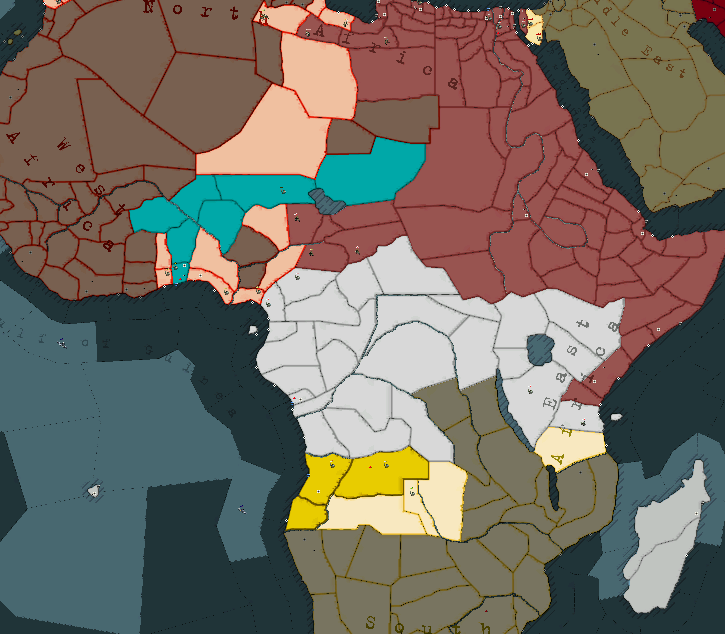
In the Middle East, Union troops are pushing back the Indians and are advancing practically unopposed into Turkestan, while the Egyptian-Arab front remains static at Suez.
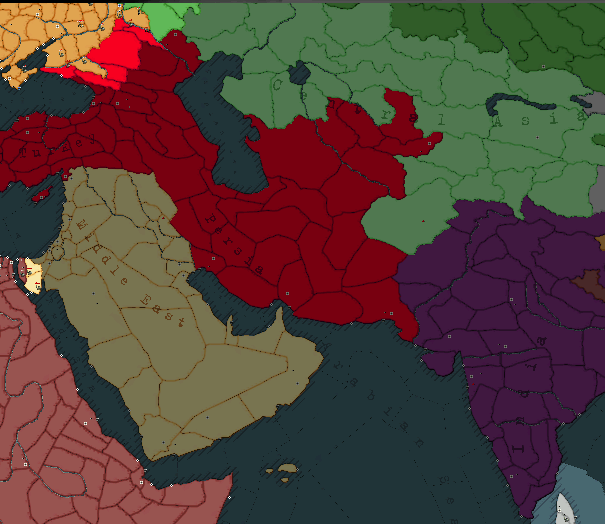
In Asia, the Russians are making a good show of defending Manchuria and Korea, and are also advancing into Mongolia.
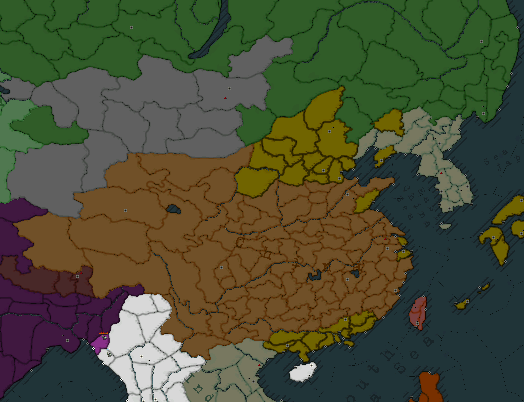
In America, the continual back-and-forth between Mazula and the Federation continues, neither side able to gain the upper hand decisively.
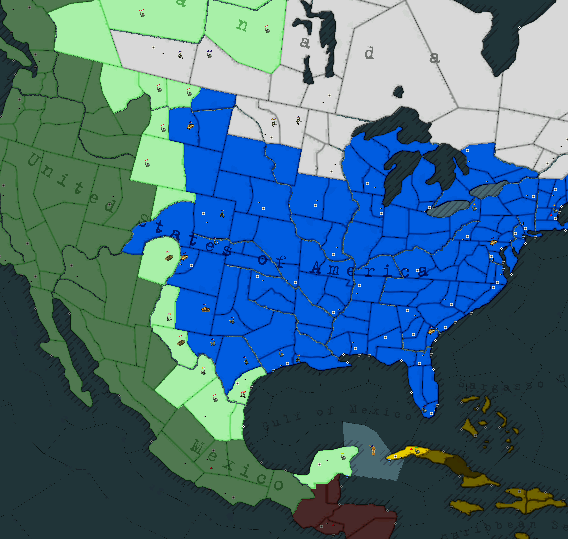
Jadakal continues its downward spiral into dissent and revolt, losing what gains it has made on Qtizi to Tarwajal revolters.
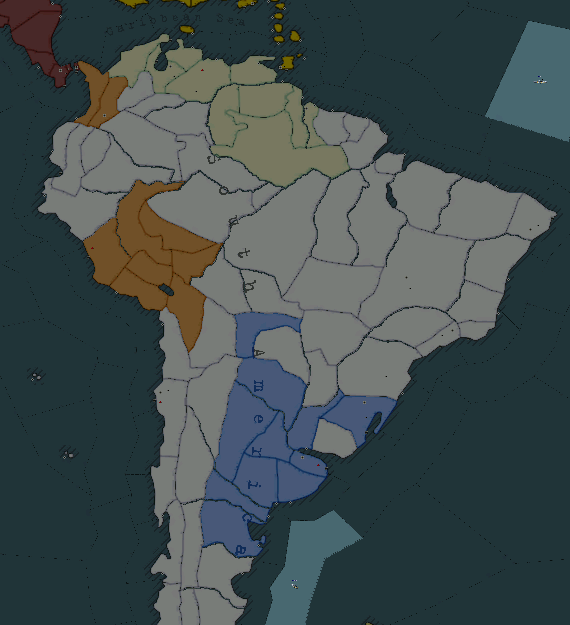
With all this in mind, the question is now: Is the Advisory Council for or against peace with Russia on the proposed terms?
Voting
Option A: Accept the peace proposal

Option B: Keep fighting
